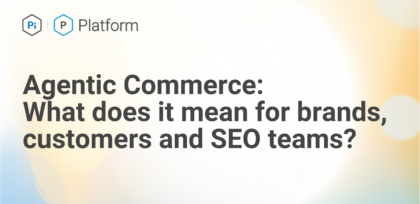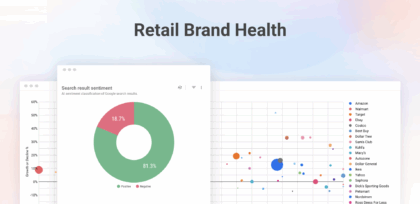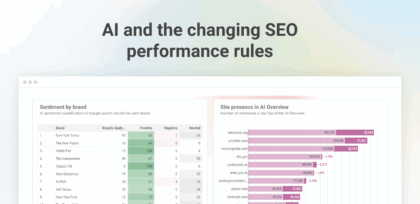Generative AI and what it means for the future of SEO
16 Aug 2023|4 MIN READ
In a recent webinar, Pi’s Chief Product Evangelist and Co-Founder, Jon Earnshaw, explored the evolution of search. Specifically, what the new developments in generative AI could mean for the future of SEO.
Jon kept viewers engaged, giving the low-down on how search has evolved in the last 20 years and exploring the SERP Multiverse and how this is impacting SEO.
Jon then goes on to explore generative AI and how we’re already seeing a shift in the way people search, before offering his expert knowledge on how SEOs can prepare for the future.
Watch the full webinar ‘What does generative AI mean for the future of SEO?’ below, or read on for a quick recap!
How has search evolved?
“AI is not merely reshaping the mechanics of online search; it’s causing a seismic shift in how we interact with search engines and engage with content online.”
Jon Earnshaw, Chief Product Evangelist & Co-Founder at Pi Datametrics
As Jon points out in his future of SEO webinar, we have seen some developments in search technology in the last 20 years, but the level of change we can expect to see in the next 18 months will be monumental in comparison.
In the early 2000s, we would happily type short-tail keywords into Google and sift through the 10 blue links to find a relevant answer to our query. Because this is how search engines were made to work.
Since then, we’ve seen the introduction of images, video, carousels, People Also Ask, and many more SERP features, evolving into what we now know as Universal Search.
Although the way we search hasn’t changed much in the last 20 years, the likes of Google have been working in the background to make their search engine smarter – implementing AI models, such as BERT and MUM, to disambiguate and understand the most complex queries.
This, Jon believes, was the start of Google moving away from keywords.
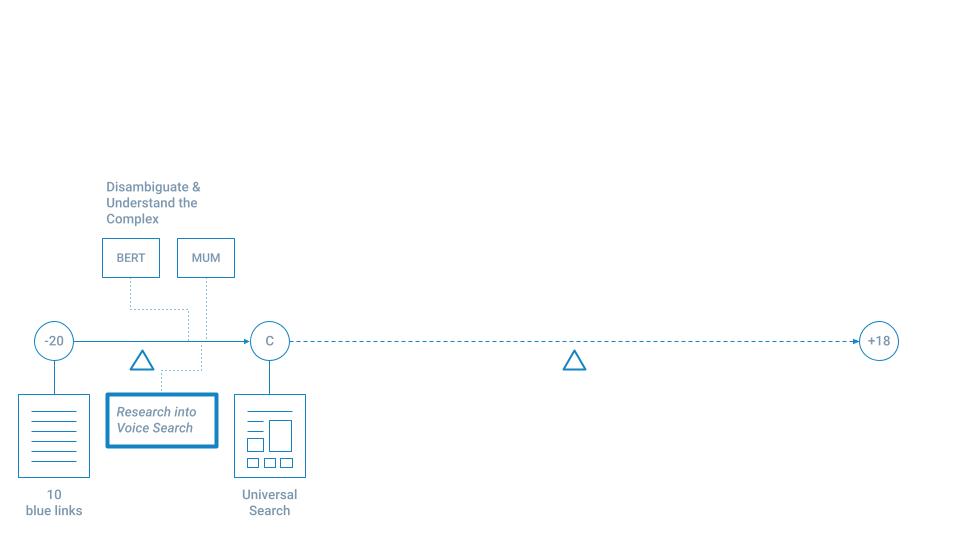
Image source: Infographic from Jon’s webinar on the future of SEO
But, in his webinar, Jon poses a very interesting question – if this is the case, then why are we all still stuck playing the keyword game?
Not for much longer!
As generative AI, such as ChatGPT and Bard, converge with search, Jon predicts we will start to see longer-tail queries and voice searches rise.
Jon goes on to discuss how SEOs need to seriously think about search as “a journey of exploration and discovery” and getting to grips with searcher intent and the SERP Multiverse is key…
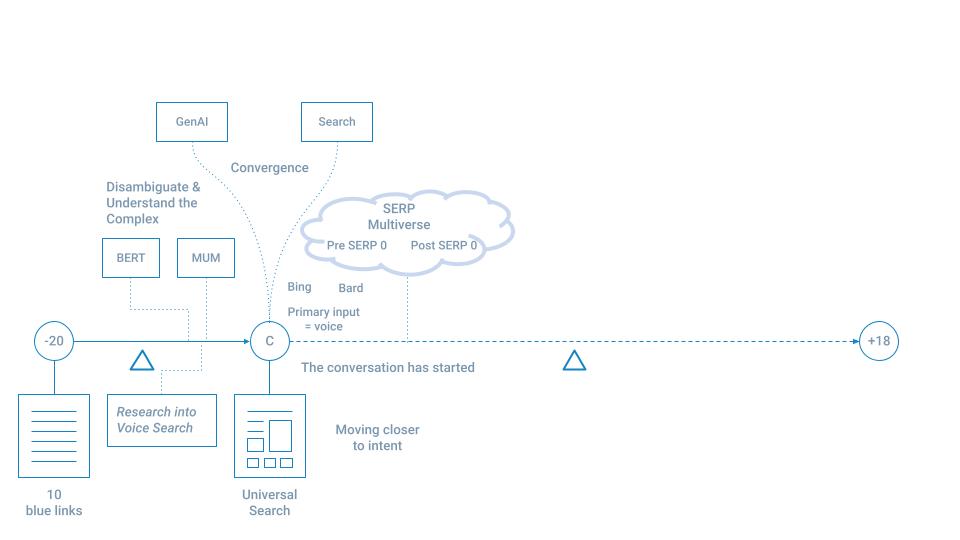
Image source: Infographic from Jon’s webinar on the future of SEO
What is the SERP Multiverse?
The SERP Multiverse is a term coined by Jon to describe the understanding that there are multiple SERPs available outside of SERP zero.
To understand this we need to think about what happens when we search…
Say, I’m looking to purchase a new moisturiser, the first thing I’d do is pick up my phone and type-search “best moisturiser” into Google.
The next thing that happens is Google’s autocomplete predictions appear. Google generates suggestions based on what other users have successfully searched for using “best moisturiser”.
And when I click on one of these autocomplete predictions, I don’t land in SERP zero for my original query that used the trophy term “best moisturiser”. I land in a completely new SERP depending on which autocomplete I decide is closer to my intention, e.g. “best moisturiser dry skin”.
And what’s important here is that autocomplete SERPs can be up to 95% different to SERP zero!
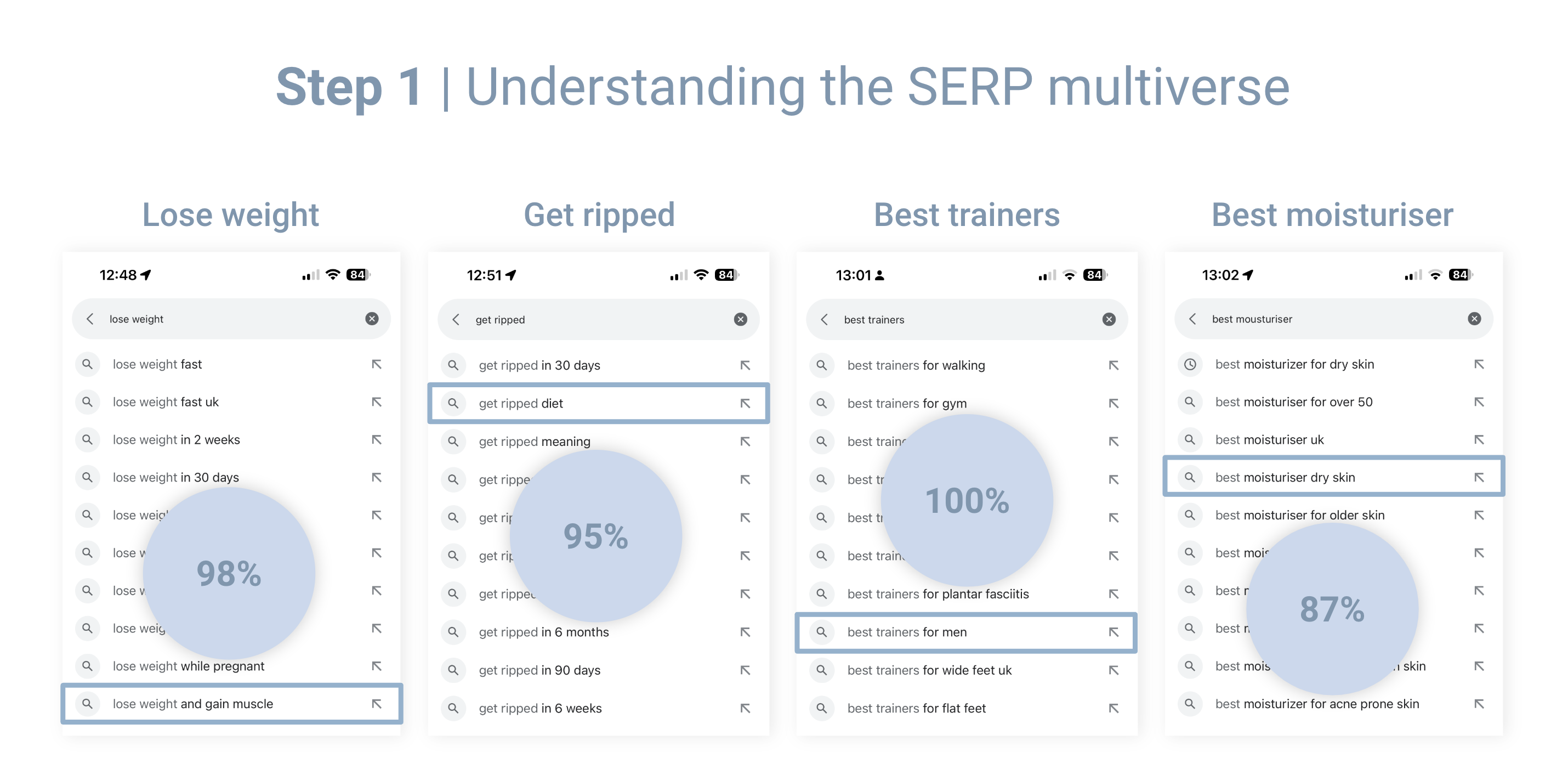
So, not only is each autocomplete prediction closer to a user’s intent, but it’s also going to result in a completely different SERP for the searcher.
That means, if you’re only tracking and chasing a trophy term (e.g. “best moisturiser”), you’re probably not returning for any of the autocomplete derivatives.
And if a user does land in SERP zero? There are still multiple doorways – People Also Ask, Refine My Search and many more – that lead the searcher to multiple variations of the SERP.
The important questions Jon urges us to ask are; “Are you present in these multiple SERPs?” and most importantly, “Are your competitors there?”.
To learn more about optimising for the SERP Multiverse and contextual optimisation – catch up on Jon’s BrightonSEO talk here.
Watch the webinar below to see why it’s so important to track multiple SERPs, especially in today’s world of generative AI.
The impact of generative AI on search
In his webinar, Jon expertly outlines how search is evolving and explores how multi-SERP landscapes are posing a challenge for SEOs.
But, what can we expect to change once we see generative AI fully merged with search and rolled out to the public in the coming months?
Jon makes a very good case that generative AI = more conversational searches.
Are users fast realising that longer-tail, conversational queries are working better? Do they prefer to see all the content in one place, rather than having to sift through blue links, clicking and coming back?
Jon highlights this brilliantly in his future of SEO webinar below.
During the time when Google was introducing BERT, experts at Pi Datametrics carried out academic research into voice search.
Using a group of university students the study looked into how satisfied participants were with search results when they used voice search versus the more traditional method of typing keywords.
And the result? There was a direct correlation between longer-length queries and higher rates of search result satisfaction reported by the users.
If you’re interested in learning more about the research, you can download the full study and results here.
So, how will these longer more conversational queries impact search results? Jon predicts we’ll start to see much more personalisation in the near future!
Not everyone will use the exact same words or phrases when using a voice search to shop for the latest perfume, for example.
There will be differences in longer-tail multiverse queries that are likely to result in very different and perhaps more bespoke SERPs too.
Jon takes listeners through some fascinating examples in his webinar – watch it below!
So, what does this mean for Google’s 10 blue links? It’s definitely an interesting question and one to keep in mind as the launch of SGE looms.
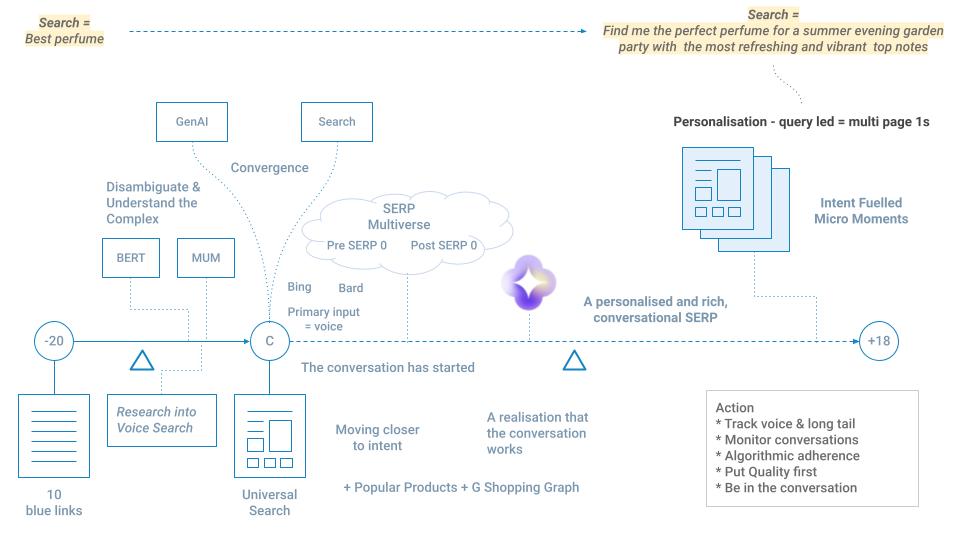
Image source: Infographic from Jon’s webinar on the future of SEO
How to prepare for the future of SEO
So, as SEOs what action can we take now?
Two key points that Jon highlights in his webinar;
- In the era of generative AI, algorithmic adherence will be more crucial than ever because quality content is the content that will continue to stand out.
- And if people are having a conversation in the SERPs, they’re going to want to continue the conversation when they journey onto your website too.
Jon also goes on to explain the importance of tracking longer-tail queries and voice equivalents now to get ahead of the curve.
He stresses the importance of visualising your performance throughout the SERP multiverse – getting inside the mind of the audience and thinking about the questions and conversations they are going to have on their journey of exploration and discovery.
Jon discusses this in more depth during his future of SEO webinar below.
If you’d like to know more about how our SEO platform can help you track your visibility or you’d like to have a conversation with one of our experts on how to prepare – simply book a demo!
Demo the software today
Book demoFeel free to connect with Jon Earnshaw on LinkedIn to follow the conversation and be the first to hear more expert insights on the topic of AI in SEO!
Never miss a post
Join our mailing list and have our SEO news delivered straight to your inbox.
